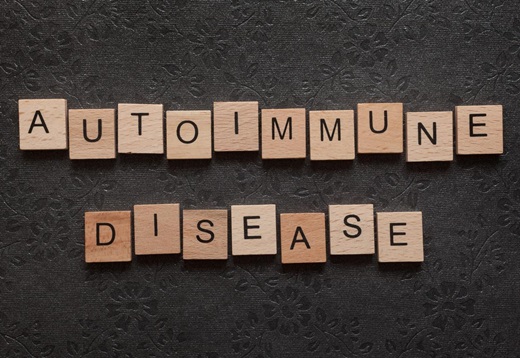Autoimmune Disease: Why Is My Immune System Attacking Itself?
Reviewed By:
Autoimmune disease affects 23.5 million Americans, and nearly 80 percent of those are women. If you’re one of the millions of women affected by this group of diseases, which includes lupus, rheumatoid arthritis and thyroid disease, you may be wondering why your immune system is attacking itself.

Ana-Maria Orbai, M.D., M.H.S., is a rheumatologist at the Johns Hopkins Arthritis Center. Rheumatologists specialize in diagnosing and treating musculoskeletal diseases and autoimmune conditions (rheumatic disease). Orbai explains several theories researchers have about what might cause autoimmune disease, including infection, tissue damage and genetics.
The Link Between Autoimmune Disease and Women
Doctors aren’t sure why autoimmune disease happens in the first place or why women are affected more than men. One theory is that higher levels of hormones in women, especially during the childbearing years, could make women more susceptible to autoimmune diseases.
However, Orbai notes that this idea has not yet been proven — there are many factors that affect autoimmunity, both genetic and environmental. Researchers cannot definitively explain why women develop these diseases more than men do.
The Role of Infection and Disease
On a basic level, autoimmune disease occurs because the body’s natural defenses — the immune system — attack the body’s own healthy tissue. Researchers have several ideas about why this happens.
When the body senses danger from a virus or infection, the immune system kicks into gear and attacks it. This is called an immune response. Sometimes, healthy cells and tissues are caught up in this response, resulting in autoimmune disease.
Many scientists believe this is what causes rheumatoid arthritis, a type of autoimmune disease that attacks the joints. It’s also common that after having strep throat, people develop psoriasis, an autoimmune condition that causes patches of thick, scaly skin.
Other types of autoimmune disease may come from the body trying to fight specifically against cancer cells. Orbai points to scleroderma, a disease that causes thickening of the skin and connective tissues. “The thought is that when the immune system gets rid of the cancer, there is a leftover inflammatory response because of that fight,” she says. Johns Hopkins researchers studied patients who developed both scleroderma and cancer to try to clarify this relationship.
The Damage Theory
Scientists think injury may play a role in some types of autoimmune disease such as psoriatic arthritis, a condition that affects the joints of some people with psoriasis.
Research has shown that in parts of the body subjected to high stress, an autoimmune response happens after damage to tendons, which attach muscle to bone. For example, a runner’s heel is an area where the muscle is constantly pulling on the bone to create movement.
“This repeated stress can expose tissue that shouldn’t normally be in contact with blood cells,” says Orbai. “When that tissue gets exposed, it’s like a small wound. Blood cells try to heal it, but an abnormal immune response causes inflammation of the joints and tendons.”
Orbai is quick to point out that while there is some data to support them, scientists have not proven that these are causes of autoimmune disease.
Genetic Risk
It’s clear that genetics play a role in autoimmune disease, but researchers still don’t fully understand how. For example, having a family member with lupus or multiple sclerosis (MS) raises your risk of getting these diseases. Some families have multiple members affected by different autoimmune diseases. However, genetics alone isn’t enough to cause autoimmune disease.
“We know that genes are important, but they aren’t everything,” Orbai says. “You can have family members with lupus or MS and never get them yourself. You can even test positive for lupus-specific DNA and still not have the disease.”
It’s possible that autoimmune disease occurs based on the immune system’s ability to handle stress. Orbai says that this is an area of intense research. “When does the stress on your body exceed your immune system’s ability to handle it? If we knew this, it could be the key to preventing autoimmune disease before it develops.”






